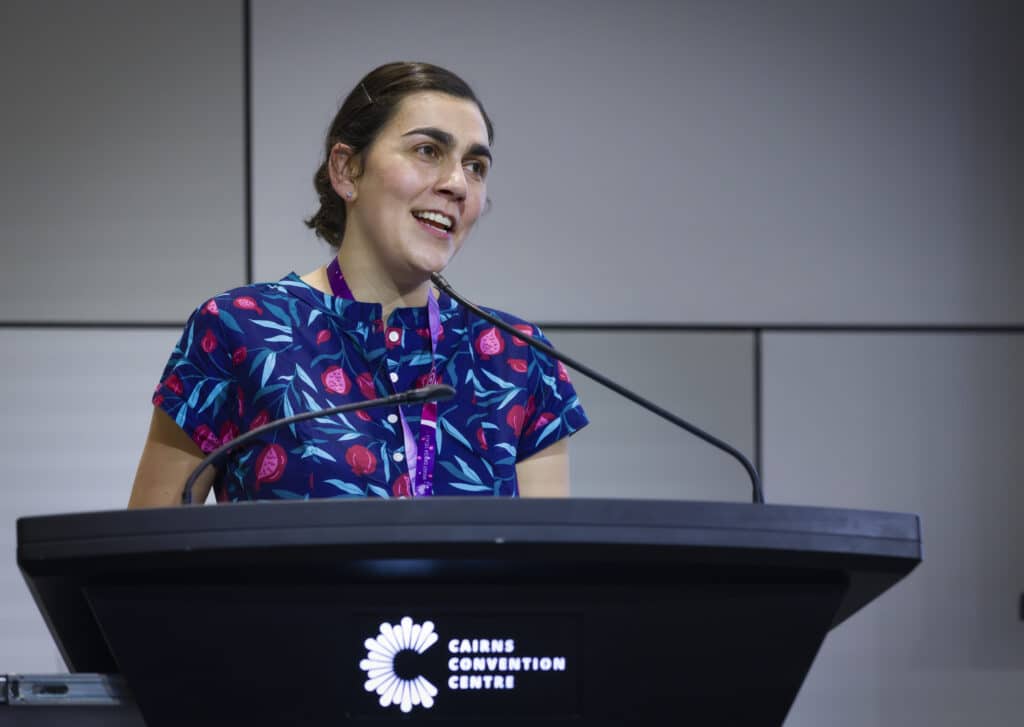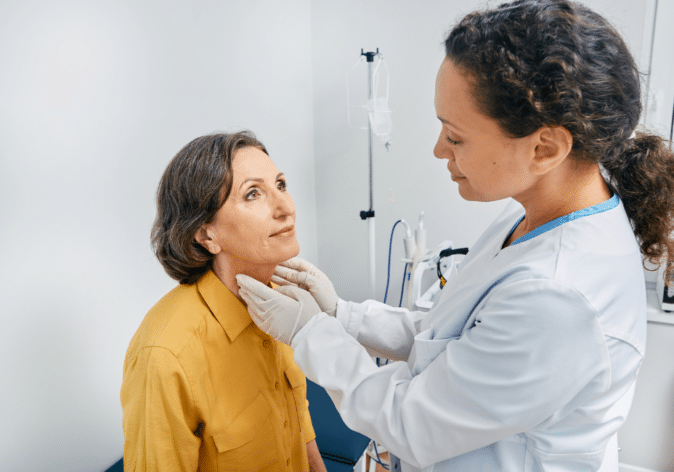Dr Sarah Zardawi is an early career medical oncologist who has trained in palliative medicine. She has a private practice in Maitland, New South Wales, and is working as a clinical fellow at Breast Cancer Trials in Newcastle.
“Cancer medicine and clinical trials are increasingly targeted as we try and deliver personalised medicine for patients. As a result, we’re testing more and more specific things in more and more specific situations, which is great for patients in terms of patients getting the right treatment at the right time with as few side effects as possible.”
“But it means that it’s increasingly difficult for clinical trials to find those patients and run the trials in those patients. So, our project is about trying to expand recruitment and reach more patients to try and catch those patients that are eligible for these increasingly specific clinical trials, and also just reach more patients in general that might not live in a metropolitan area.”
How has telehealth transformed the way that breast cancer clinical trials are conducted and what are the advantages and potential limitations?
“So telehealth is an increasing priority in healthcare and particularly after COVID-19, patients are increasingly wanting and expecting telehealth because of the benefits in terms of convenience.”
“So clinical trials are very complicated, and it is difficult to run a trial entirely via telehealth, but that is an increasing research priority. Our project is just a small part of the clinical trial process, wherein we’re trying to help find the patients that are eligible for some particular breast cancer clinical trials using telehealth.”
“So we’re taking the travel and the logistics out of the first part of the clinical trial process, where patients are able to be assessed remotely via telehealth, to see if the trial would be a good fit for them. If they’re a good fit for the trial we connect them with a main trial site, which does involve them travelling, but we’ve at least streamlined the start of that process for them.”
“So, it’s a new process for us and we’ve had to develop some new systems to be able to receive referrals, review patients, test patients, and communicate the results back to patients and to their regular oncologist. So, it’s definitely been a logistical process that we’ve worked through.”
“We’re hoping that we’ll be able to use this for more and more breast cancer trials in the future. Because as I said before, our trials are increasingly trying to target very specific patient groups.”
Listen to the Podcast
Dr Sarah Zardawi is an early career medical oncologist who has trained in palliative medicine. She has a private practice in Maitland, New South Wales, and is working as a clinical fellow at Breast Cancer Trials in Newcastle. We spoke with her about the role of telehealth in the conduct of clinical trials research.
What impact does telehealth have on making breast cancer clinical trials more accessible to women in remote areas?
“So, most breast cancer trials are run in major cities around Australia, which obviously means that there can be travel involved for patients that live away from those major cities. So, we’re hoping that with telehealth we can remove that travel component for patients. And as a result, those patients will have access to breast cancer trials and the treatments that are being investigated.”
“We also hope that it will improve the quality of our breast cancer trials data, because it will mean that it’ll be representative data. So, we will be testing treatments in real world patients as well as taking trials to patients that live more rurally. We’re hoping that by making it easier for patients that live a bit more regionally or rurally to participate in breast cancer trials, the data that we’re collecting about how breast cancer treatments work will be more representative, and more able to be applied to a real-world population.”
“So, one of the major challenges we’ve experienced so far is actually getting the word out there about the fact that we are offering telehealth for that introductory part of some of our clinical trials. We’ve got a great communication set up with existing Breast Cancer Trials sites and there are staff there that we work closely with.”
“But the purpose of this project is actually to take a step beyond that and to try and help patients who aren’t at a Breast Cancer Trials site to be involved in our trials. We’ve tried reaching out to the doctors, to the medical oncologists in particular, but hopefully some activities like this and reaching out to patients directly will help us implement this process and reach more patients.”
What role do educational initiatives play in increasing awareness about the benefits of clinical trials among patients?
“So clinical trials offer a range of benefits for patients in addition to testing a potential new intervention in patients. We know that the extra supervision and monitoring increases outcomes. So, it improves the outcomes for patients, even if they’re allocated to the usual standard treatment in a clinical trial.”
With clinical trials it’s really about reaching patients, and the more awareness that there is about the benefits of trials and the way that trials are run carefully, safely, and appropriately, wherein patients aren’t guinea pigs at all, but they are well cared for with the care that they need, receiving quality treatments, which are at least the best current standard of care. The more patients know about that, and hopefully the more willing they will be to participate in clinical trials and help us to improve our breast cancer treatments for the patients of today and tomorrow.”
“So, I think patients being aware of the benefits of clinical trials and also aware of any particular clinical trials that are relevant to their specific situation will just help with our research process, help us recruit those patients, reach those patients, and collect good data.”
Support Us
Help us to change lives through breast cancer clinical trials research



